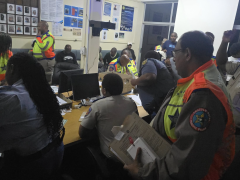Zambian authorities are set to implement a Pre-export Verification of Conformity (PVOC) to standards programme on May 1 this year. According to a spokesman for Bureau Veritas, the inspections company contracted by the Zambian government to do the preshipment inspections, a roadshow is scheduled for April in South Africa to inform exporters to Zambia of the new procedures, processes and rates. “Advertisements in the national and specialised press will announce dates and venues for the roadshow that will definitely visit Cape Town, Durban and Johannesburg. The aim of these meetings will be to communicate the new import regulations,” the spokesman said. The new import legislation, which was tabled and signed in February this year, will have significant impact on shippers from South Africa who supply nearly 50% of all imports to the landlocked country. According to Bureau Veritas there are many benefits to the new legislation including protection of the consumer and the environment. “It will also mean more conformity assurance and faster goods release at Zambian customs offices with the appropriate Certificate of Conformity,” said the spokesman. Not all are that optimistic though, with one transporter who specialises in Zambia telling FTW the new legislation is likely to upset some clients. “As it affects most of the products currently being exported to Zambia, there is no doubt that all consignments will incur major dispatch delays while awaiting this inspection,” said the transporter. “On many occasions the preshipment inspection cost will be more than the actual cost of the goods so I am sure that we can expect much opposition to this requirement.” In the meantime, Zambia has maintained that like many other African countries the decision to implement a PVOC system will benefit its consumers as it will stop sub-standard imports entering the country. The Zambian Bureau of Standards (ZABS) introduced the new standards following much deliberation due to the challenges that came with a lack of monitoring systems in an open market economy. According to the ZABS, all goods destined for Zambia will now be inspected in their respective countries of origin and issued with a certificate of conformity. The inspection companies in the countries of export will not inspect goods below a threshold of $100. Goods affected by the new programme include food and agricultural products, textiles, footwear, chemical and household products, toys, childcare goods, electrical and electronic products, automotive spare parts and all used products












